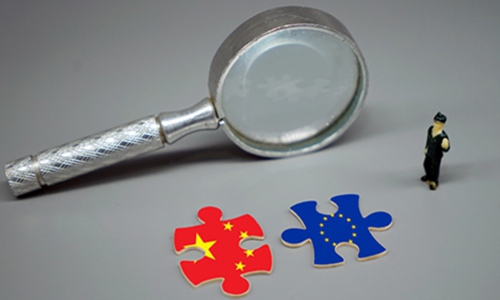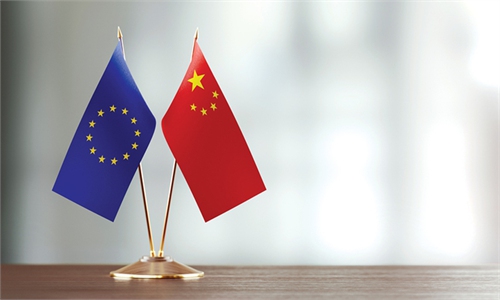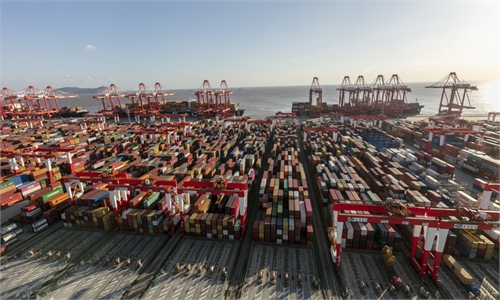Will S.China Sea issue become setback in China-EU relationship?

Xisha Islands in the South China Sea Photo: VCG
It is acknowledged that the EU is not a stakeholder in the South China Sea issues nor a regional player for that matter. Yet it claims economic, political and strategic interests in the region and keeps pointing its finger at the territorial disputes from time to time.On Saturday, the EU criticized China in a statement for "endangering peace and stability" of the South China Sea region. It raised the issue of the presence of Chinese vessels at Niu'e Jiao. The EU reiterated its strong opposition to "unilateral actions that could undermine regional stability and international rules-based order."
By issuing such a statement, the EU is turning a blind eye to the fact that the reef area is the traditional fishing area of Chinese fishermen. Every year Chinese fishing vessels appear there. Tensions were hyped up while China and the Philippines were peacefully managing their maritime disputes.
By far, the South China Sea issue is not an obstacle in China-EU relations. It remains to be seen whether it will be in the future.
In 2016, in face of the illegal South China Sea arbitration, the EU had difficulties gathering unanimous positions to adopt a joint statement, and it at last issued one that avoided direct reference to China. This showed that when speaking in one voice, the EU wanted to remain "neutral" regarding the South China Sea issue.
China needs to keep alert on whether member states of the EU will reach a consensus or whether the EU will find any "common ground" with South China Sea claimant countries. If so, the territorial disputes may become an obstacle in China-EU relations.
But for China and the EU, the South China Sea issue is not a strategic and security competition like the one between China and the US. It is a geoeconomic matter. Many South China Sea claimant countries are the EU's important trade partners. The EU is by far the largest investor in ASEAN countries. The geoeconomic rivalry between China and the EU will be far less intense than the geopolitical competition between China and the US.
To some extent, the EU's emphasis on maritime security and freedom of navigation, which aims to create an unfavorable international opinion sphere to China, is consistent with the US' China containment strategy. Within the framework of NATO, both the US and the EU hope the bloc can expand beyond the transatlantic partnership and turn into a global NATO. Therefore, cooperation and coordination in the South China Sea region is likely.
Meanwhile, the EU wants to have its own voice against the backdrop of major power competition and the return of geopolitics to its advantage. Therefore, we constantly hear that the EU stresses strategic autonomy. It hopes to stick to its own interests in common security and defense policy agendas. It wants an equal, rather than subordinate, relationship with Washington.
In terms of China affairs, the EU tries to be independent from the China-US competition. Meanwhile, it shows hesitation and swings when it has to stand by one of them. This is largely due to its lack of strength and the difficulty to achieve internal unity. It is behaving like a clay giant; it hopes to play a leadership role in international issues, but its strength does not support it to do so. The failure to bridge the gap between hope and reality is changing the EU from being open and tolerate. It is becoming close and narrow-minded.
The foundation of China-EU relations is still cooperation, not divergences. When it comes to Asian security matters, the two have a lot of room to communicate and coordinate. China should make the EU understand that the generally peaceful situation in the South China Sea now is the result of communication and joint efforts by both China and other claimant countries. The unstable factors and security risks the region faces mainly come from outside the region. The EU should not stir up the waters. China does not welcome the EU with such a role. Nor do regional countries like the Philippines. The EU should not blindly follow the US "political correctness" moves to sacrifice its real interests with China.
The author is a research fellow with the Institute of European Studies, the Chinese Academy of Social Sciences. opinion@globaltimes.com.cn




